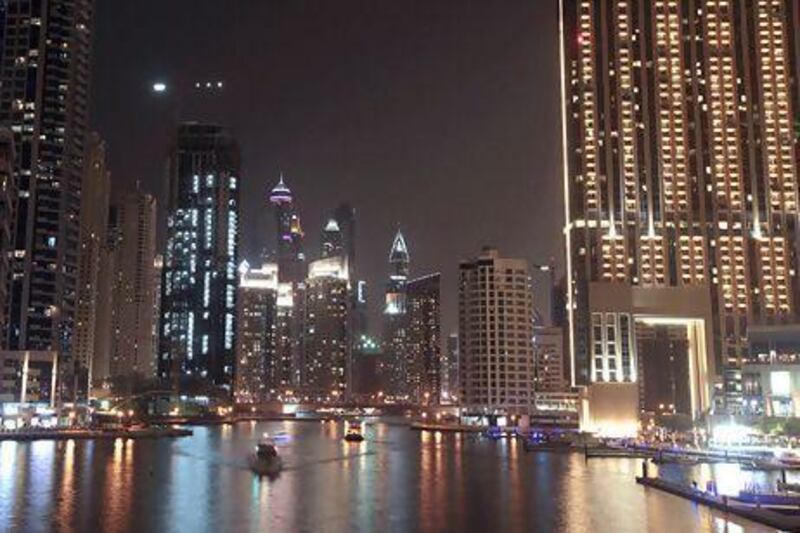Rising rents and utility costs are driving inflation across the Emirates to its highest level in two years as Dubai’s property recovery spreads to secondary locations, data released yesterday show.
In Dubai, which is recording the biggest jump in rents and which also reported its own price index data yesterday, housing and utility costs rose 1.4 per cent over the year and 0.2 per cent during the month, the Dubai Statistics Centre revealed. Housing costs account for almost 44 per cent of consumer expenses in the emirate’s calculations. The overall change was 1.6 per cent year on year.
Rents in Dubai have been increasing steadily throughout this year as landlords hit by the global financial crisis have sought to take advantage of improving sentiment in the emirate.
According to a report by the property broker CBRE last month, rents in Dubai increased by 7.5 per cent between April and June alone and by more than 30 per cent over the past year driven by a rapid increase in rents in secondary locations like Dubai Sports City and Jumeirah Village.
“Most of the big agents have reported rent increases of between 10 and 15 per cent so far this year but our data is mostly weighted towards apartments at the upper end of the market,” said Craig Plumb, the head of research at Jones Lang LaSalle’s Dubai office. “This data shows that rent rises are trickling down to include the entire market.”
“The increases seem for the most part to be down to an improvement in sentiment,” Mr Plumb added. “There has been no fundamental shift in the economy overnight. It just seems to be that people are expecting increases in rent.”
An increase in housing rents is also pushing up the cost of living across the UAE as national consumer price inflation rose 1.3 per cent in the year to July, its highest levels since 2011.
According to data released by the National Bureau of Statistics yesterday, the cost of housing across the UAE, which accounts for more than a third of the average person’s expenses, rose 0.4 per cent over the year to July 2013.
The bureau reported that housing rent rose 0.07 per cent in July alone month on month.
Prices for food and soft drinks, which make up a further 14 per cent of average expenses, showed significant price fluctuations. They rose over the year by 3.5 per cent but registered a 0.3 per cent month on month fall in July which cancelled out the housing cost increase for the month.
According to the National Bureau of Statistics, the cost of medical care fell 0.2 per cent during July and the cost of furniture fell 0.1 per cent. The cost of buying a mobile phone fell 0.7 per cent.
The cost of clothing, footwear and textiles increased 0.1 per cent and transport costs rose slightly.
The price of fish fell 2.4 per cent over the month and the cost of milk and eggs fell 1.5 per cent.
Vegetables, tea, coffee and cocoa all increased 1.2 per cent in price.
The Dubai agency reported that food and drink prices rose 2.3 per cent over the year to the end of July but fell by 1.3 per cent compared with the end of June pushing the Dubai index down slightly by 0.1 per cent overall month on month.





